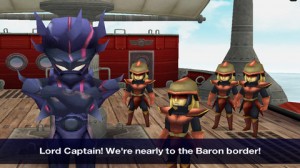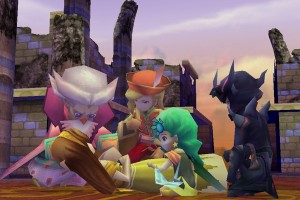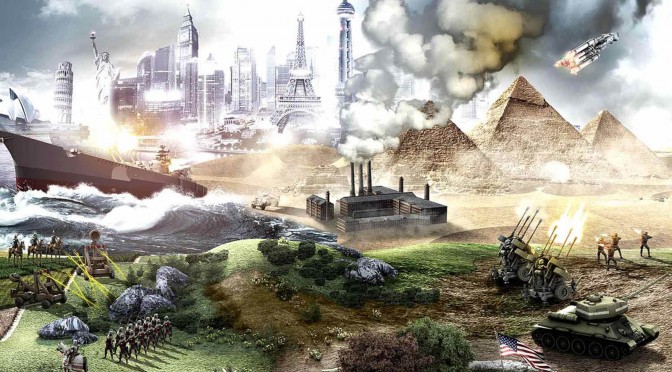When it comes to stories in games, they break down into two types of experiences. Some games, which tend to be more common, offer embedded narratives that involves a story that is already given to the player. On the other side, there are emergent narratives, where the player decides where the story goes and it evolves as the game goes on.
When it comes to embedded narratives, there are a lot of games that come to mind. They are common, and there are a lot of good examples out there. (i.e. Bioshock Infinite, The Last of Us) However, one game truly captures the essence of a brilliant embedded narrative, and that is Final Fantasy IV.
Final Fantasy IV, which was released all the way back in 1991, did a lot of good things that really stuck with me. Sure, it had good rpg elements and the game played pretty well, but that was not what I remembered from the game. I remembered the well-made story that went along with those elements. It was the aspect of the game that makes it a stand out from the rest. The narratives in the succeeding Final Fantasy‘s get more complex and deeper, but this was the first game in the series that really contained a narrative that was significant.
The story throws you right in the middle of a heated conflict between the Red Wings, the regions elite air force unit, and the city of Mysidia. The Red Wings are after the Water Crystal, which happens to be located in the city. You’re then introduced to one of the primary characters in the game, Cecil Harvey, the captain of the Red Wings. After the attack, he begins to question the kings motives behind the attack, but is then stripped of his rank and is forced to deliver a package to a nearby town with Kain, commander of the Dragoons. It is from here that the story starts to get deeper.
 During the course of the game, you run into twelve playable characters in total. The coolest part about this game was that I actually cared about all of these characters too, which tends to be uncommon in games these days. Characters like Rydia, Rosa, Yang, Palom, Porom, and Fusoya all meant a lot to me during the course of the story. Another one of my favorite characters was Cid, who tends to be the comic relief throughout the story. He is a big jolly fella who is the mechanic of the team. He always has something to say about the situations that the group found themselves in.
During the course of the game, you run into twelve playable characters in total. The coolest part about this game was that I actually cared about all of these characters too, which tends to be uncommon in games these days. Characters like Rydia, Rosa, Yang, Palom, Porom, and Fusoya all meant a lot to me during the course of the story. Another one of my favorite characters was Cid, who tends to be the comic relief throughout the story. He is a big jolly fella who is the mechanic of the team. He always has something to say about the situations that the group found themselves in.
But, as the story went on, not everything was a happy walk in the park. There were story twists, which involved characters switching from being the good guys to the bad guys. There were also some sacrifices that characters made in order to save the team. The situation was rather unexpected, and I felt pretty awful after I witnessed the cut scene that showed the two characters sacrifice their lives to save the others. On top of all of this, there was also the narrative of Cecil, and his progression from a Dark Night to a White Knight. I was constantly rooting for him to change his ways, and finally (during a pretty powerful cut scene) Cecil transitioned from dark to white. 
When I finished the game, I remember thinking a lot about what happened. I met a lot of characters through the journey, and not all of them made it to the end. It was a moving story that up to that point, I never really experienced before in a game. Final Fantasy IV truly demonstrates the power that games can have in the realm of storytelling.
Sitting at the other side of the storytelling table is the case of emergent narratives. The game that sticks out to me the most in my experiences was Civilization. The Civilization games don’t give you a story to start out with, but they give you a region of the world to rule and progress. The task at first seems daunting. How can one person keep a great civilization on its feet for so long? This is where the emergence of the game starts to poke it’s head.
 In Civilization, the story is in the players hand. Everything that happens in the game is a result of your doings. The thing that makes this game great is the possibilities that can arise from giving players such power. To illustrate this, let me give you the example of Feudal Japan.
In Civilization, the story is in the players hand. Everything that happens in the game is a result of your doings. The thing that makes this game great is the possibilities that can arise from giving players such power. To illustrate this, let me give you the example of Feudal Japan.
As you most likely know, Feudalism in Japan didn’t last forever. The system of rule had it’s glory days, but it didn’t last the test of time. However, I took the civilization of Japan far into the future, and I managed to take over large parts of the US and Great Britain along the way. I was soon the primary superpower of the world, and many of the other, now puny, civilizations crumbled under the weight of my regime. I was aggressive, but I didn’t forget about the people at home. My citizens were well taken care of and they prospered. They gained a good education and they maintained a good way of life, free from any stress.
It’s stories like these that show the true complexity of Civilization. Sure, you can start as America and try to reenact how the course of history actually played out, but where’s the fun in that? In fact, it would be almost impossible to accomplish that. The game encourages you to step out and change the course of history. It’s always fascinating to see the alternate histories that arise out of the dust as players progress in the game. Not one player has the same experience.
Don’t get me wrong, there are probably a ton more games that I overlooked, but these were the games that really stuck out to me the most, considering the two aspects of storytelling. Games offer a unique advantage when it comes to storytelling. Movies and TV force you to sit through a narrative from start to finish, without any input or interaction. Games, however, are more hands-on and flexible when it comes to narratives. That’s what makes them great.

